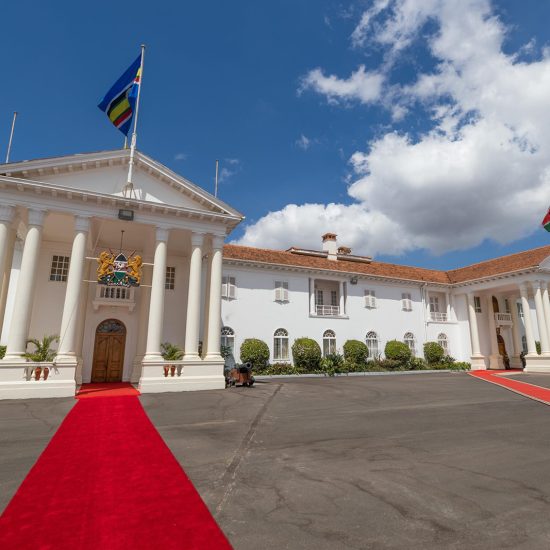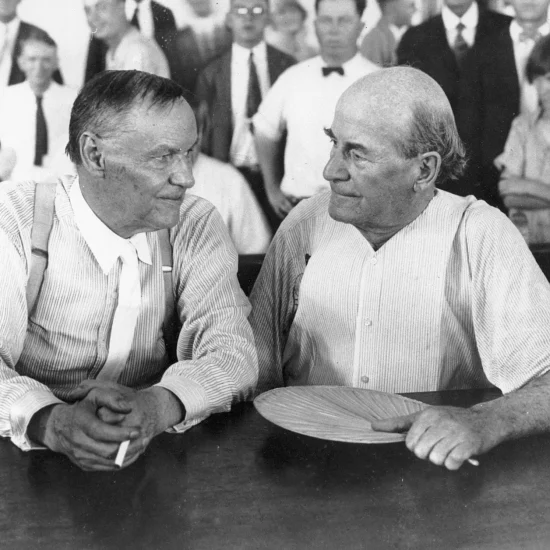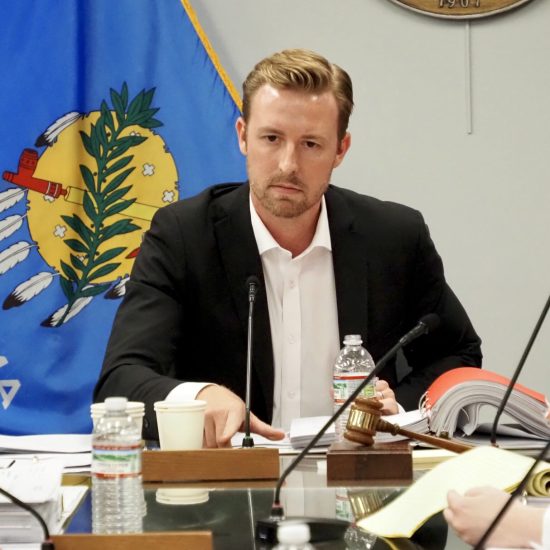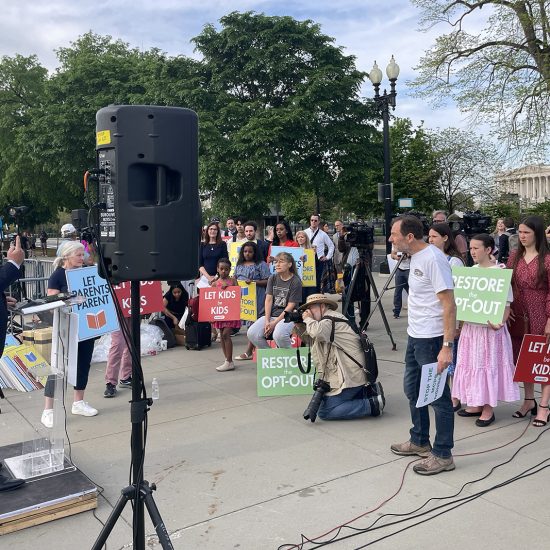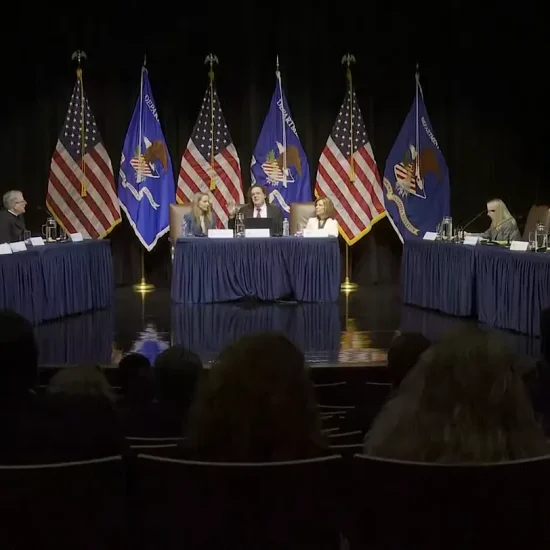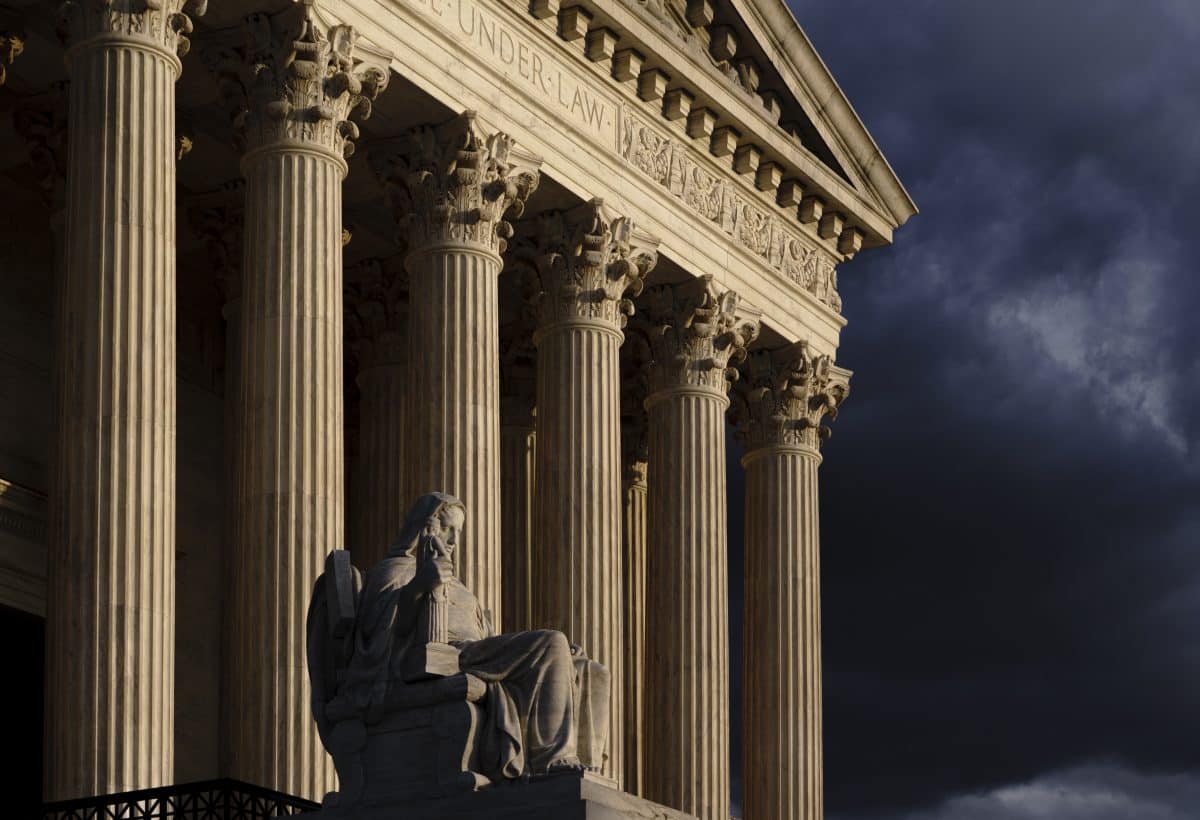
“People have turned their backs on God,” Franklin Graham declared on Fox News last week. “Our educators have taken God out of schools. Our politicians have taken God out of politics. Our nation is not better [for it]. Our nation is worse.”
And what does he mean when he says educators took God out of schools?
Decision magazine, the publication of the Billy Graham Evangelistic Association that Franklin leads, explained in its write-up of the Fox News interview: “On June 25, the nation will commemorate 60 years since the U.S. Supreme Court handed down its decision in Engel v. Vitale, which made school-sponsored prayer unconstitutional.” Graham is upset that schools no longer force children to recite government prayers.
To fix this, Graham wants Christians to take over their local school boards (and thus apparently reestablish prayer). He’s not hiding his agenda, claiming “the most important elected official is a school board member.”
“We need Christian men and women on school boards who can take control of their communities,” he added. “All of this trash and all of this filth that the left is pushing on our students — that can be turned around if Christian men and women ran for school boards.”
But he also has another solution: He wants the U.S. Supreme Court to allow school prayers. And he hopes a case the justices heard Monday (April 25) will move the nation in that direction. In Joseph A. Kennedy v. Bremerton School District, Graham sided with a football coach who sued his school district for telling him to stop leading public, audible prayers at the 50-yard-line on the school’s football field with students immediately after games. So, the two organizations Graham leads — the BGEA and Samaritan’s Purse — joined an amicus brief encouraging the justices to rule for the coach and against those advocating for the religious rights of students.
The brief, which was also joined by the Ethics & Religious Liberty Commission of the Southern Baptist Convention, Concerned Women for America, and other groups, repeats a number factual errors about the case that seem dangerously close to the command against bearing false witness. For instance, they refer to Kennedy’s prayers as “private conduct” (which it clearly was not) and they pretend like “the school” is an entity that doesn’t include its employee Kennedy (as they argued Kennedy invited students to pray but “the school” didn’t).
But the kicker comes in the brief’s claim that Kennedy’s prayers didn’t violate the Constitution’s Establishment Clause because there really isn’t a problem with “encouraging and endorsing religion.” The brief essentially argues that as long as someone is practicing their religion — even teachers at public schools — the courts cannot “ever override” that religious activity. That logic suggests if we don’t let them establish their religion, we’re preventing their free exercise rights. If adopted by the Court, such an argument would answer Graham’s prayer of undermining the precedent of Engel v. Vitale.
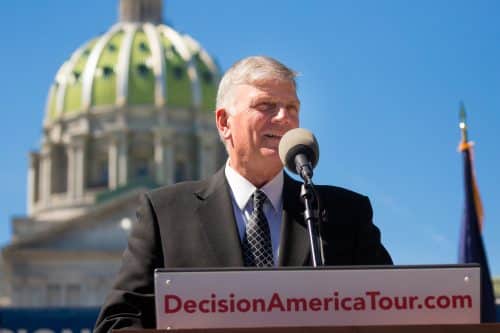
Franklin Graham speaks outside the Pennsylvania Capitol in Harrisburg as part of his “Decision America Tour” on Sept. 15, 2016. (Billy Graham Evangelistic Association)
With a majority on the high court increasingly antagonistic about the Establishment Clause, the football coach stands a chance of winning. And that ruling could move the ball pretty far down the field toward Graham’s vision of subjecting children to government prayers.
So, in this issue of A Public Witness, we tackle the arguments in Kennedy v. Bremerton, review the call on the field about church-state issues in public schools, and throw a flag against the Christian Nationalism trying to undermine public education, democratic principles, and religious sincerity.
Taking a Knee
The audibles uttered by Kennedy at the football field’s 50-yard line were not in the team’s playbook. Instead, the assistant coach at a public high school in Bremerton, Washington, started taking a knee to pray at midfield following each game. He claimed the practice was only about offering God “the glory after every game, win or lose” and he believed it important to pray “on the field of battle.”
The prayer ritual grew more controversial over time, increasingly designed by Kennedy to gain public attention. One district judge described how Kennedy prayed “surrounded by players, members of the opposing team, parents, a local politician, and members of the news media with television cameras recording the event, all of whom had been advised of Kennedy’s intended actions through the local news and social media.”
The local school board directed Kennedy not to involve students in his prayer time and offered him an accommodation to quietly pray elsewhere. He refused and continued the practice. The board then put him on administrative leave for the rest of the 2015 season. Once his contract expired, he neither reapplied for the position nor was his contract renewed. So, he sued the district, alleging a violation of his free exercise rights.
The district argued it “faced a stark choice: Either let its employee dictate how school events would be run — even if that threatened the safety and religious freedom of the students — or take the steps necessary to curb the practice.” School officials feared the prayers were unconstitutionally coercive, as a coach’s words and actions exert influence over the actions and conduct of impressionable high school student-athletes.
Rachel Laser — who leads Americans United for Separation of Church and State, the organization that represented the school district before the Supreme Court — explained this concern to ESPN: “The coach is a mixture of fear and awe. And you want in with the coach. You want playing time. You don’t want the bench.” Similarly, one district resident told Adam Liptak of the New York Times, “It may not have been explicit coercion, but there was an implicit coercion. When the coach goes out to the 50-yard line, he has something to say.”

Joseph Kennedy (marked with red arrows) leads players and others in his “private” prayers at football games.
While the dispute focuses on the choices made by a paid coach working for a public school district, these voices serve as a reminder that the rights of students should be front and center. Not only are they more susceptible to undue influence than adults, but their participation in school and school-related events is often compulsory to some degree. Are their rights violated by a coach prominently engaging in an act of worship during a school event?
Even people who love prayer, like local Bremerton ministers, think so. For instance, Greg Reffner, a United Methodist pastor, explained his concern with Kennedy’s behavior as a coach in an interview with a local news station: “I want fellow Christians to see this as an attack on religious freedom. Ours and our neighbors.” Reffner joined several clergy of various faith traditions from Bremerton in filing an amicus brief in support of the school district.
“Given the prospect of lasting harm to students’ psyches and souls, the school district could not responsibly have allowed a public-school authority figure to override the free exercise rights of the students in his care,” the clergy argued.
Beyond the religious coercion issues, the school also notes other problems arose from the 50-yard-line prayer rallies. As Richard Katskee, Americans United vice president and legal director, told the justices Monday while defending the school district, “Kennedy’s actions pressured [the kids] to pray and also divided the coaching staff, sparked vitriol against school officials, and led to the field being stormed and students getting knocked down.” What an unholy mess!
While the nine justices will have the last word, AU’s Laser told us Monday she “thought the arguments went as well as they could have.” She added, “Richard [Katskee] did a magnificent job of showing how the facts being presented by coach Kennedy’s lawyers were deceitful, and showing how the laws of our country are so solidly on the side of the Bremerton School District in this case.”
Help sustain the ministry of Word&Way by subscribing to A Public Witness!
Religious Law
The case reflects an inherent tension in the religious clauses of the First Amendment, where the Constitution decrees, “Congress shall make no law respecting an establishment of religion, or prohibiting the free exercise thereof.” In this instance, the conflict centers on religious speech by a government official. Are the prayers of the football coach a protected expression of his personal beliefs or an official endorsement of religion prohibited on establishment grounds? What about the free exercise rights of non-Christian players?
Past Supreme Court rulings sorting out these conflicts emphasize both the inappropriateness of religious speech by the government and the need to protect the consciences of students from undue government influence. Three key rulings were repeatedly mentioned during Monday’s arguments. And if a majority of justices side with the football coach, they could undermine jurisprudence of the last six decades that affirmed the religious liberty rights of students.
In a landmark 1962 case, Engel v. Vitale (that still upsets Franklin Graham), the Court struck down government-sponsored prayers in public schools. Justice Hugo Black explained in the majority’s opinion, “When the power, prestige, and financial support of government is placed behind a particular religious belief, the indirect coercive pressure upon religious minorities to conform to the prevailing officially approved religion is plain.”
Similarly, in Lee v. Wiseman in 1992, prayers at graduation ceremonies and other official public school events were also ruled out of bounds constitutionally. Again, the majority opinion considered both the government’s actions and the dilemma of non-consenting students.
“The undeniable fact is that the school district’s supervision and control of a high school graduation ceremony places public pressure, as well as peer pressure, on attending students to stand as a group or, at least, maintain respectful silence during the invocation and benediction,” wrote Justice Anthony Kennedy for the majority. “This pressure, though subtle and indirect, can be as real as any overt compulsion.”
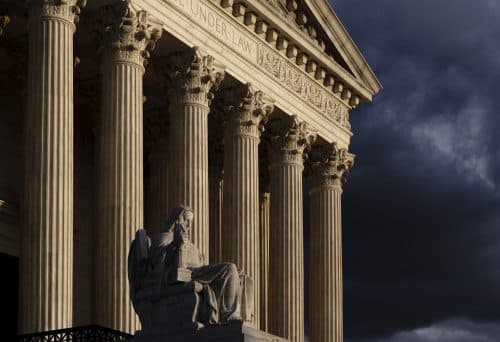
The Supreme Court building. (J. Scott Applewhite/Associated Press).
And in Santa Fe Independent School District v. Doe in 2000, the Court struck down a public school district’s practice of offering student-led prayers over the public address systems before football games. While acknowledging football games are less compulsory than graduation ceremonies, the majority still found the practice problematic.
“There are some students, however, such as cheerleaders, members of the band, and, of course, the team members themselves, for whom seasonal commitments mandate their attendance, sometimes for class credit,” Justice John Paul Stevens wrote for the majority. “Even if we regard every high school student’s decision to attend a home football game as purely voluntary, we are nevertheless persuaded that the delivery of a pregame prayer has the improper effect of coercing those present to participate in an act of religious worship.”
While a full repudiation of these cases is unlikely, the decision in Kennedy v. Bremerton could weaken these precedents protecting church-state separation and the rights of students. As Holly Hollman, general counsel for the Baptist Joint Committee for Religious Liberty, told us in a statement after Monday’s arguments, “Constitutional protections for religious liberty in public schools were on the line today.”
“It was startling to hear the Supreme Court even consider whether public school officials can use their government position to lead religious exercises when this has been a settled question for decades,” she added. “Families across our country must be able to trust public schools not to interfere in their personal religious choices.”
Get cutting-edge reporting and analysis like this in your inbox every week by subscribing today!
Endorsing Coercion
The impact of the Court’s ruling in this case could extend far beyond the Friday night lights illuminating Bremerton’s stadium. Even allegedly narrow opinions can still be used by other judges and government officials to enact much more expansive policy shifts.
The justices made it clear during the oral arguments they weren’t just thinking about prayer at sporting events but also the behavior of public school teachers. And one line of questioning brought particularly concerning answers. Justice Sonia Sotomayor grilled Kennedy’s attorney Paul Clement about hypothetical cases involving a teacher praying or reading the Bible out loud in their classroom. While Clement agreed it would be impermissible during the school hours, he seemed open to such religious activity by a teacher with students in the classroom either before the bell rings to start the school day or after the bell rings at the end. Such moments, he argued, “would be protected” as “private speech.”
That might not seem like a big deal. But one of us (Brian) sees from his son’s school experience significant problems in Clement’s scenario. Students can arrive in their classroom nearly 30 minutes before the school day actually starts, with many sitting there to eat breakfast while the teacher is present. Although some students won’t be there yet since school hasn’t officially started, the teachers are already on duty. They shouldn’t get to lead prayer huddles during breakfast time just because some artificial bell hasn’t sounded. Similarly, a coach’s role doesn’t end after the final whistle of the game.
Public education in a democratic society means that every student is equally respected by school staff and offered an equal opportunity to learn. Parents shouldn’t be worried that their child will face religious coercion from teachers and coaches whose salaries are paid by their tax dollars. As AU’s Katskee told the justices Monday: “If a math teacher knelt and said audible prayers in class just before the bell, the school district could act. Coaches have far more power and influence, especially at the time and place of those traditional post-game speeches.”
However, this concern appears trivial to those who don’t see government endorsement of a religion as a significant problem. Clement criticized the school district for acting “out of misguided endorsement concerns.” Trying out his best The Brady Bunch impersonation, he also complained the school was worried about “endorsement, endorsement, endorsement, endorsement.” And Justice Neil Gorsuch, who doesn’t believe church-state separation is a real constitutional principle, echoed this as he complained that “many school districts and municipalities around the country continue to operate on this endorsement idea.”
By dismissing endorsement concerns, Clement and Gorsuch silence the voices of students and ignore the religious liberty rights of anyone besides the coach. But those operating with a Christian Nationalism perspective often overlook the rights of minorities and dissenters. Kennedy’s free exercise rights do not allow him to establish his faith in ways that undermine the free exercise rights of students. Yet, he finds support for his position from some prominent politicians and Christian leaders (though we’re doubtful those same leaders would be happy if a Muslim coach led the team in prayers).
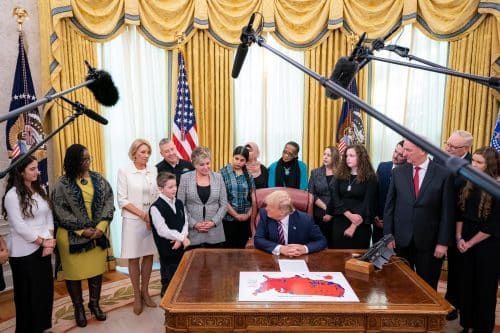
Joseph Kennedy (in front of the U.S. flag) attends an event in the Oval Office on Jan. 16, 2020, as then-President Donald Trump signed an executive order promoting prayer in schools on the day his first impeachment trial started. (Tia Dufour/Public Domain)
“It’s terrifying to think that agents of the state like public school teachers and coaches could impose their religious views on students because that’s a violation of students’ and families’ religious freedom,” AU’s Laser told us. “It offends me as a lover of our democracy and it offends me as a parent because when we send our kids to public schools we trust them to the school and we put them in the care of teachers and coaches whom we trust to teach and coach, not preach and pray.”
To be clear, we are pro-prayer. We bow our heads in devotion every day because we believe that’s how God works on our hearts. At the same time, we are pro-conscience. Religious belief should be authentically held rather than coercively forced. And we think the right place for Christians to learn about the power of prayer is inside their church, not in a public school or on a football field.
We shouldn’t confuse government prayer with religious sincerity, just like we must not equate Kennedy’s demands with true religious liberty for all. As Justice Sotomayor put it during oral arguments: “I don’t know of any other religion that requires you to get at the 50-yard line, the place where post-game victory speeches are given. What religion requires you to do it at that spot?”
Certainly not Christianity. That is, assuming you’re following Jesus and not Franklin Graham.
As a public witness,
Brian Kaylor & Beau Underwood
A Public Witness is a reader-supported publication of Word&Way. To receive new posts and support our journalism ministry, subscribe today.

